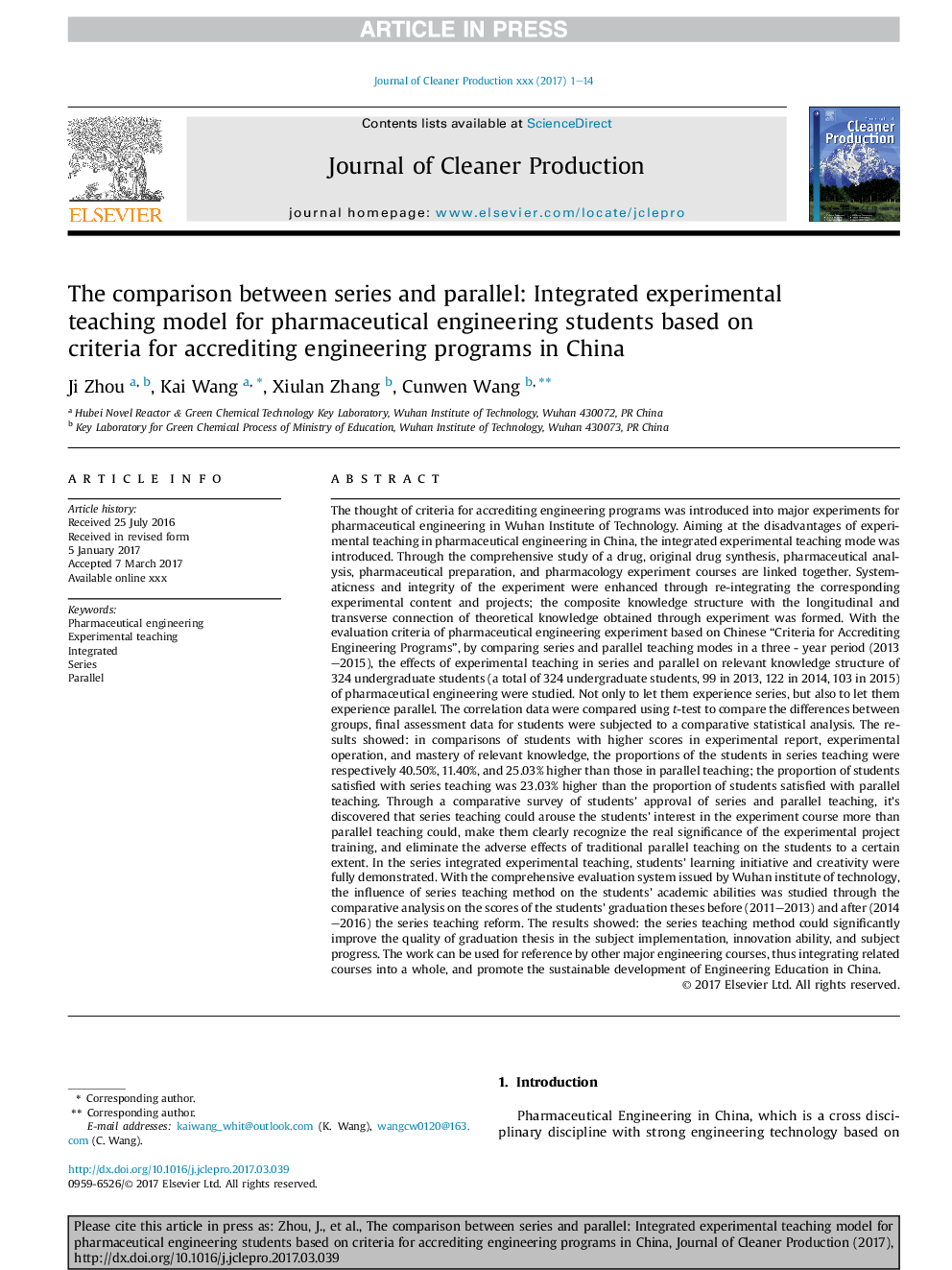The thought of criteria for accrediting engineering programs was introduced into major experiments for pharmaceutical engineering in Wuhan Institute of Technology. Aiming at the disadvantages of experimental teaching in pharmaceutical engineering in China, the integrated experimental teaching mode was introduced. Through the comprehensive study of a drug, original drug synthesis, pharmaceutical analysis, pharmaceutical preparation, and pharmacology experiment courses are linked together. Systematicness and integrity of the experiment were enhanced through re-integrating the corresponding experimental content and projects; the composite knowledge structure with the longitudinal and transverse connection of theoretical knowledge obtained through experiment was formed. With the evaluation criteria of pharmaceutical engineering experiment based on Chinese âCriteria for Accrediting Engineering Programsâ, by comparing series and parallel teaching modes in a three - year period (2013â2015), the effects of experimental teaching in series and parallel on relevant knowledge structure of 324 undergraduate students (a total of 324 undergraduate students, 99 in 2013, 122 in 2014, 103 in 2015) of pharmaceutical engineering were studied. Not only to let them experience series, but also to let them experience parallel. The correlation data were compared using t-test to compare the differences between groups, final assessment data for students were subjected to a comparative statistical analysis. The results showed: in comparisons of students with higher scores in experimental report, experimental operation, and mastery of relevant knowledge, the proportions of the students in series teaching were respectively 40.50%, 11.40%, and 25.03% higher than those in parallel teaching; the proportion of students satisfied with series teaching was 23.03% higher than the proportion of students satisfied with parallel teaching. Through a comparative survey of studentsâ approval of series and parallel teaching, itâs discovered that series teaching could arouse the studentsâ interest in the experiment course more than parallel teaching could, make them clearly recognize the real significance of the experimental project training, and eliminate the adverse effects of traditional parallel teaching on the students to a certain extent. In the series integrated experimental teaching, studentsâ learning initiative and creativity were fully demonstrated. With the comprehensive evaluation system issued by Wuhan institute of technology, the influence of series teaching method on the studentsâ academic abilities was studied through the comparative analysis on the scores of the studentsâ graduation theses before (2011â2013) and after (2014â2016) the series teaching reform. The results showed: the series teaching method could significantly improve the quality of graduation thesis in the subject implementation, innovation ability, and subject progress. The work can be used for reference by other major engineering courses, thus integrating related courses into a whole, and promote the sustainable development of Engineering Education in China.


